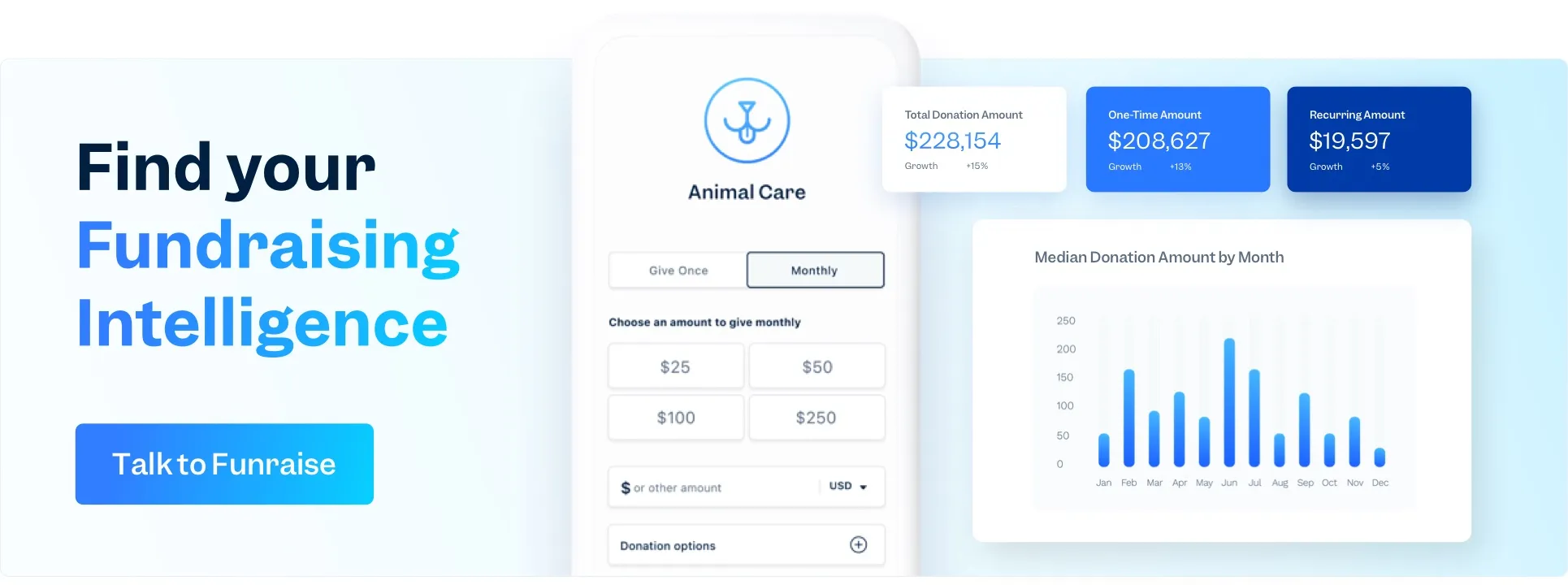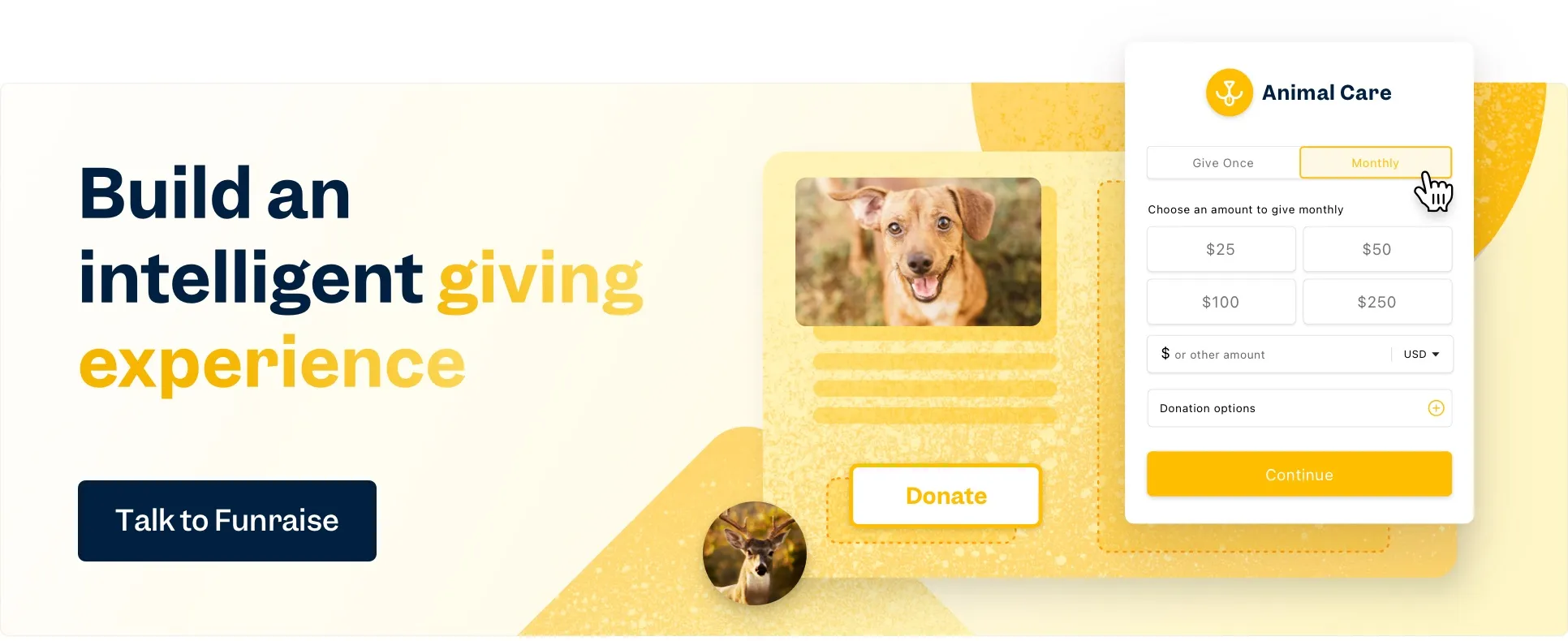If you're anything like us, you were thirsty for more after listening to our Nonstop Nonprofit podcast episode with Olga M. Woltman. ...Which is why we couldn't let her go without a bit of extra education on something we're all searching for.
Today's topic with Olga? Storytelling with Ease!
In typical LemonSkies style, Olga brought up the title with a laugh, delighted at the pun and alliteration within. Her definition of ease... or "E's"? Emotion, Empathy, and Ethics—everything a nonprofit storyteller needs to spin up a simple-yet-successful story.
Read on for Olga's easy "E's" to supercharge your storytelling.
Emotion
Question: What emotions do fundraisers want to include or leave out of their stories?
Olga M. Woltman: I’d argue that you can include anything but indifference. Indifference is a product of either not caring or caring too much. Depending on your goal, different emotions—outrage, guilt, insight—stir an immediate response, while hope keeps you going in the long term.
How can a fundraiser/nonprofit storyteller convey emotion in varying media?
Imagery is powerful, as is your choice of words. I believe in the power of highlighting a small, poignant detail; it grabs you. But to focus the power of those details, choose one rather than many. Delivery method aside, I believe it's clarity, lack of ambiguity, and connection to the values that convey emotion.
One unfortunate pitfall I see is nonprofits feeling compelled to stir emotion through an extreme story. As the audience becomes desensitized, nonprofits serve up progressively more extreme content wherein nuance is discarded.
How do fundraisers avoid turning their story into a sobfest at the expense of the constituent?
Authenticity. Unflinching reality is more impactful than over-the-top theatrics.
How do fundraisers direct donors' emotions to action, avoiding winding people up without a release?
We don’t direct; we stir up what’s already there. We cannot create emotion; we can only harness it.
Empathy
A really smart person told us that how you ask questions allows you to dig deeper into the story and really get to the heart of it. Is there a method to the asking?
You cannot be afraid to ask the uncomfortable questions. We all subscribe to a polite avoidance in our everyday interactions, but as a storyteller, you have to cut to the heart of the matter.
The most common inflection point is when storytellers only ask, “What happened?” That's the moment when you can trip yourself up by turning away from the true impact and focusing only on journalistic-style reporting. Or you can take the more difficult yet more rewarding path and ask questions that will reveal the true effects of your impact: "Why does this matter? How did you feel? What did this mean to you? What are your dreams?"
What is the value of empathetic listening? How does it produce a story that is more valuable for your nonprofit?
Empathy means looking through their lens—that simple, that complex.
Letting yourself feel the emotions that a constituent shares is crucial to supporting those who are telling their stories. It also results in a narrative that takes the audience through the emotions shared by those affected.
Ethics
How do storytellers balance ethics with delivering the story that delivers?
There is no rule that says that more impactful stories are ones that edge into the gray area. Not at all. However, I will acknowledge that some causes and stories are much easier to tell than others.
Translation: There is really no balance to be had. Ethics are not negotiable; we can talk about what it means, but we do not negotiate it.
You cannot compromise your integrity for results—not only is it not okay, but you will be found out, which will undermine your credibility. If an authentic story does not pack the punch you need, are you asking the right questions as you gather your source materials?
Regarding centering donors in a constituent's story... is that not as big a consideration as it seems?
Oh no, it is a huge consideration. Even when we are personally impacted by an issue, our act of giving is still very much about us.
The donors' role in the story comes after the ending in the moment they give. That one act allays our fears, soothes survivors' guilt, or helps us sleep at night because we’ve done something. Maybe it fulfills our sense of obligation. Even altruistic donors are driven by what they believe, putting their values into action.
How does ethics in storytelling intersect with accessibility?
Accessibility comes from clarity. There is a reason you do what you do, and accessibility means explaining why it matters in the simplest of terms. I’ve dealt with very complex and wonky issues that are challenging to explain even to experts, let alone an average bear.
You can use shorthand to trigger understanding—for example, the term “inside baseball” can articulate in two words the complex nature of foreign policy decisions being made amongst a select few, excluding those who are most impacted. You can also use a proxy; your work is not about a specific thing, it is about making the world more fair and equitable.
How much control should fundraisers give constituents over their own stories?
When you read a really great book, it strikes a balance between giving you enough information and detail to connect with the characters and plot and leaving enough unsaid for your mind to fill in the blanks. That delicate balance ensures that you are not just absorbing information, but you're an active participant in the story.
What do you see as the intersection of ethics & AI?
Talking about ethics is especially important with the rise in generative AI. You don’t want it to become a slippery slope where the story gets progressively more emotional and further and further from the truth. Photos, in particular, raise many questions for me because while words have a certain creative liberty, when photos diverge from reality, it can be problematic.
One last note: Dear Reader, you may have noticed the Q+A format of this article. One of the benefits of a question-and-answer setup is that putting it together is less time-consuming. The largest upside to this layout, though, falls directly in line with Olga's advice to tell stories from the perspective of the storyteller. With this as an example, we encourage you to take a look at each element of your storytelling and commit to making a difference with ease!































.webp)
.webp)











.webp)
.webp)

.webp)
.webp)
.webp)




